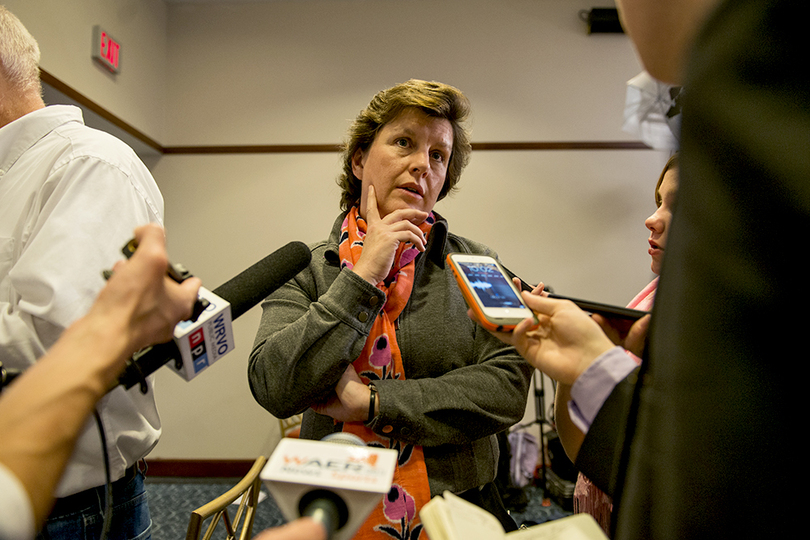Mayor Stephanie Miner proposes methods to increase voter participation during testimony

Syracuse Mayor Stephanie Miner went to Albany Tuesday to testify in front of a New York State Legislature joint budget committee. Daily Orange File Photo
Syracuse Mayor Stephanie Miner criticized the “LLC loophole” and laid out three proposals to increase voter participation in New York state during a testimony Tuesday in front of a New York State Legislature joint budget committee.
Because of a 1996 State Board of Elections ruling, limited liability companies are treated as individuals rather than corporations in New York. That means they can give up to $60,800 for primary and general election campaigns for statewide offices, $16,800 for senate races and $8,200 for assembly candidates, according to the state’s website. Corporations can give only $5,000 in contributions per year, according to the website.
Miner called that “LLC loophole” one of the root causes of “a dark storm cloud of public corruption and self-dealing” hanging over New York state.
Another root cause, Miner said, is a lack of voter participation.
“If voter participation rates are an indicator of the body politics’ health, then we have a grave illness that needs our attention,” Miner said, according to a transcript of her testimony from her press office.
She added that in the 2014 elections, less than one-third of New York state’s eligible population voted.
To increase voter participation, Miner laid out three proposals.
Miner’s first proposal was to allow for a 20-day early voting period. New York is one of 13 states that do not have any form of early voting, according to the National Conference of State Legislatures website.
The mayor’s second proposal was to allow for “no excuse” permanent absentee voting. Twenty-seven states and the District of Columbia have permanent absentee voting, in which voters can vote absentee without offering a reason for doing so, according to the NCSL website.
“This reform is a stepping stone to explore a vote by mail policy that has been implemented with great success in Washington, Oregon and Colorado,” Miner said.
Miner’s third proposal was to enact “universal voter registration,” in which people are automatically registered to vote when they turn 18 unless they opt out. Oregon recently enacted such a law.
“This groundbreaking proposal will almost certainly bolster Oregon’s best-in-the nation turnout rates that exceed 80 percent in presidential years and provide a clear roadmap for states like ours that have much room for improvement,” Miner said.




